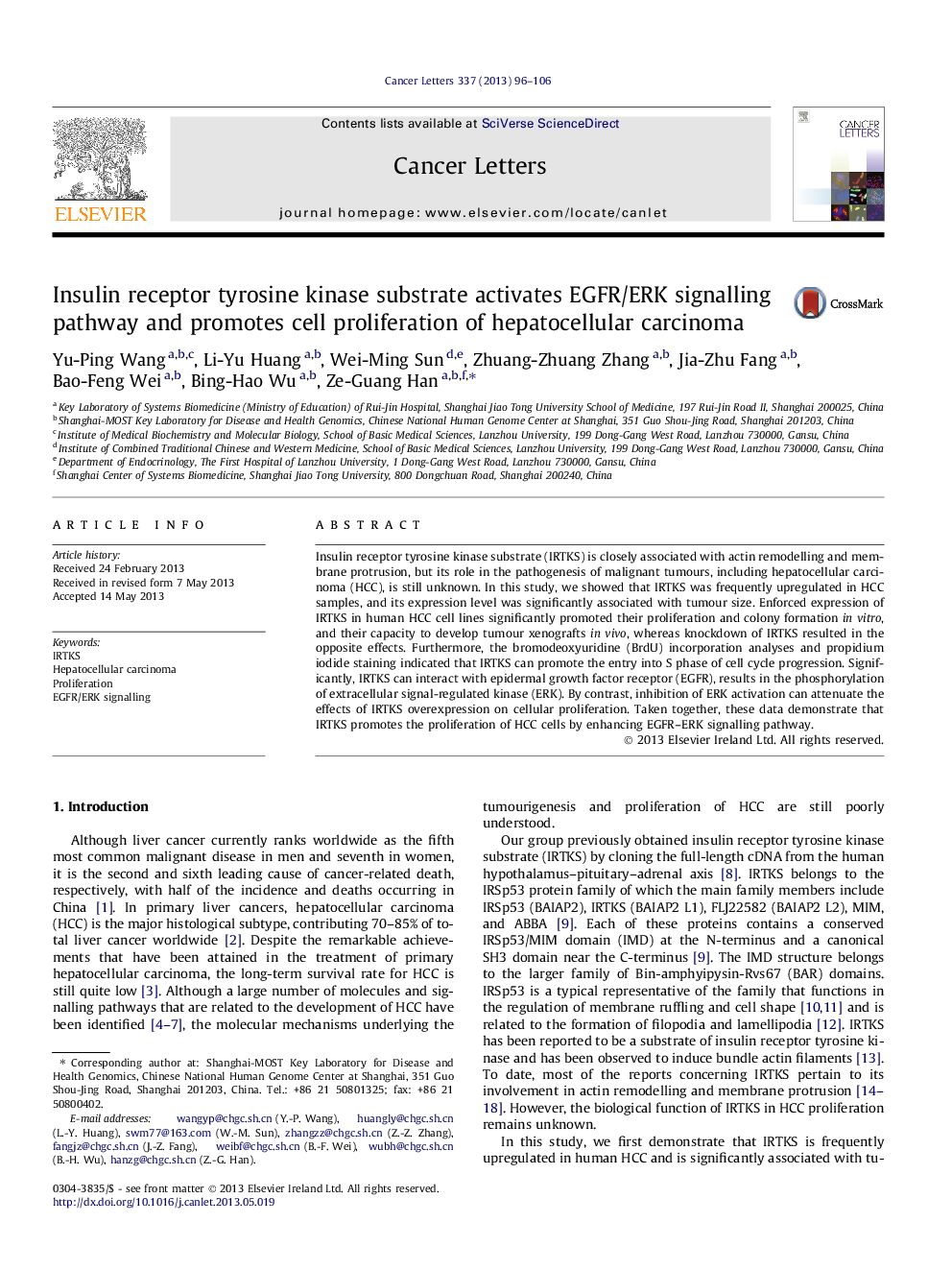| Article ID | Journal | Published Year | Pages | File Type |
|---|---|---|---|---|
| 2112931 | Cancer Letters | 2013 | 11 Pages |
•IRTKS is upregulated in HCCs, which is significantly associated with tumour size.•IRTKS promotes cell proliferation, colony formation, and in vivo tumorigenicity.•IRTKS enhances the entry into S phase of cell cycle progression.•IRTKS activates EGFR-ERK pathway by interacting with EGFR.
Insulin receptor tyrosine kinase substrate (IRTKS) is closely associated with actin remodelling and membrane protrusion, but its role in the pathogenesis of malignant tumours, including hepatocellular carcinoma (HCC), is still unknown. In this study, we showed that IRTKS was frequently upregulated in HCC samples, and its expression level was significantly associated with tumour size. Enforced expression of IRTKS in human HCC cell lines significantly promoted their proliferation and colony formation in vitro, and their capacity to develop tumour xenografts in vivo, whereas knockdown of IRTKS resulted in the opposite effects. Furthermore, the bromodeoxyuridine (BrdU) incorporation analyses and propidium iodide staining indicated that IRTKS can promote the entry into S phase of cell cycle progression. Significantly, IRTKS can interact with epidermal growth factor receptor (EGFR), results in the phosphorylation of extracellular signal-regulated kinase (ERK). By contrast, inhibition of ERK activation can attenuate the effects of IRTKS overexpression on cellular proliferation. Taken together, these data demonstrate that IRTKS promotes the proliferation of HCC cells by enhancing EGFR–ERK signalling pathway.
